Find Help
More Items From Ergsy search
-

We are autistic | NHS
Relevance: 100%
-

How can families support a member with autism?
Relevance: 30%
-
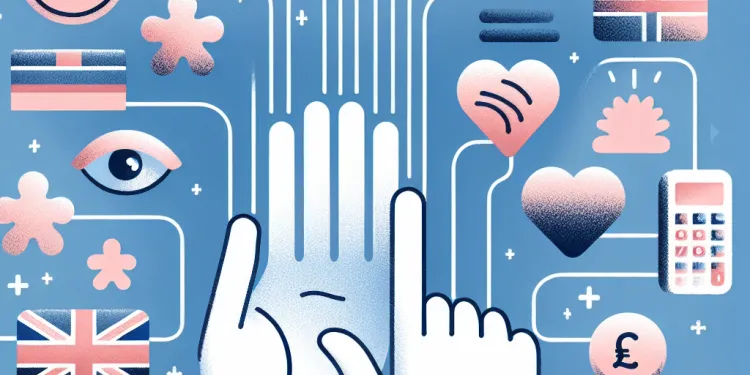
What role do sensory issues play in autism?
Relevance: 21%
-
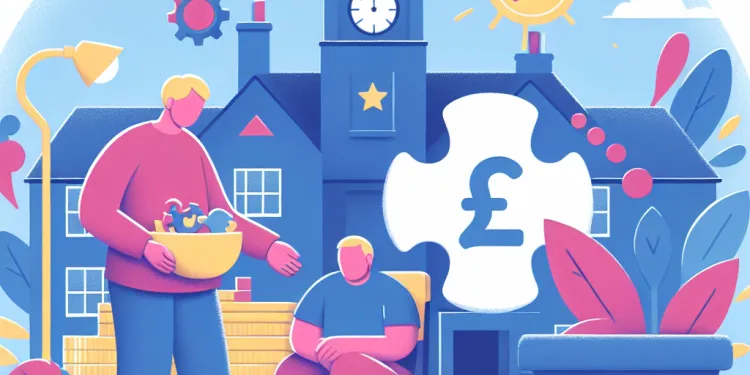
Can people with autism lead independent lives?
Relevance: 20%
-

What is the autism spectrum?
Relevance: 18%
-

Autism - My Story - Adrian | NHS
Relevance: 17%
-
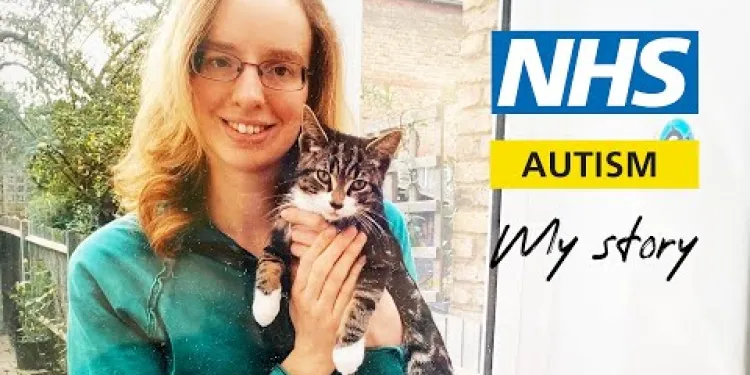
Autism - My Story - Rosalind | NHS
Relevance: 17%
-

How prevalent is autism?
Relevance: 16%
-
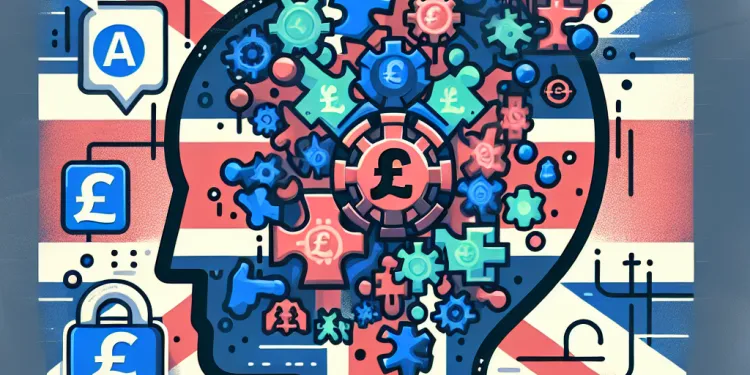
Can adults have autism?
Relevance: 13%
-

Is there an autism test?
Relevance: 12%
-

What are the signs of autism?
Relevance: 12%
-

What are SEND children?
Relevance: 12%
-

What support is available outside of school for SEND children?
Relevance: 11%
-
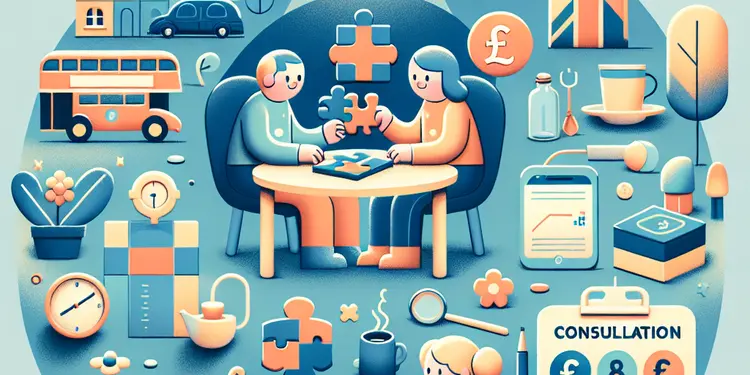
What advice is available for parents concerned about autism risks?
Relevance: 11%
-
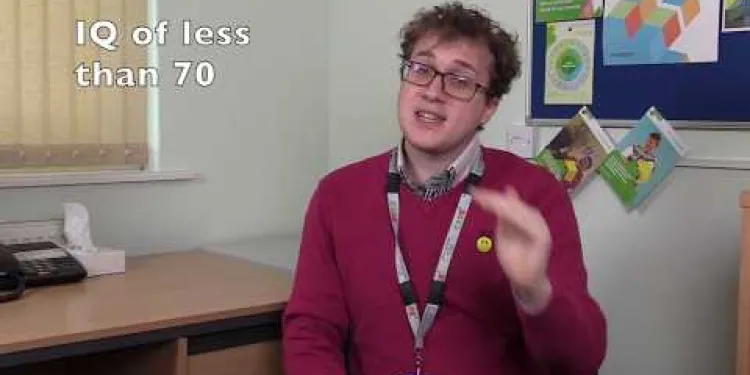
What is a learning disability?
Relevance: 7%
-

What support is available for families of individuals with PIMD?
Relevance: 7%
We Are Autistic | NHS
Understanding Autism
Autism, or Autism Spectrum Disorder (ASD), is a condition that affects how a person communicates with and relates to other people, and how they experience the world around them. It is a spectrum condition, meaning that while all autistic people share certain difficulties, autism will affect them in different ways. Some people with autism are able to live relatively independent lives, while others may need a lifetime of specialist support.
Signs and Diagnosis
Autism can be diagnosed at any age, but it is commonly identified in early childhood. Key signs include difficulties with social interactions, communication challenges, and a tendency to engage in repetitive behaviors. Diagnosis is typically performed by a team of health professionals, including psychologists, psychiatrists, and speech therapists, who can assess the child’s behavior and development.
Support and Services
The NHS provides a range of support services for individuals with autism and their families. This includes speech and language therapy, occupational therapy, and specialized educational support. Early intervention is crucial, and parents are encouraged to seek help as soon as they notice any signs of autism in their child.
Living with Autism
Living with autism presents unique challenges, but with the right support, individuals can lead fulfilling lives. The NHS offers various resources to help improve the quality of life for autistic people. This includes access to support groups, counselling services, and personalized care plans tailored to individual needs.
Conclusion
Autism is a lifelong condition, but with the right support and understanding, autistic individuals can thrive. The NHS is dedicated to providing comprehensive care and support for autistic people and their families, ensuring they have the tools they need to navigate their journey with autism.
We Are Autistic | NHS
Understanding Autism
Autism is a condition. It affects how someone talks to and understands other people. It also affects how they see the world. Autism is different for everyone. Some people with autism live by themselves. Others need help for their whole life.
Signs and Diagnosis
Autism can be found at any age, but it is usually found when a child is young. Signs of autism are trouble talking with people, finding it hard to make friends, and doing the same things over and over. Doctors and other experts can check if someone has autism.
Support and Services
The NHS has many ways to help people with autism and their families. This includes help with speaking and understanding language, help with daily activities, and special help at school. Getting help early is very important. Parents should ask for help if they think their child might have autism.
Living with Autism
Living with autism can be hard, but people can still have good lives. The NHS gives many kinds of help to make life better for people with autism. This includes support groups to talk to other people, counselling, and plans made just for them.
Conclusion
Autism lasts a lifetime, but with help and understanding, people with autism can do well. The NHS is committed to helping people with autism and their families, giving them what they need to live their lives.
Frequently Asked Questions
What is autism?
Autism is a developmental condition that affects how a person communicates, interacts with others, and experiences the world. It is a spectrum condition, meaning it affects people in different ways and to varying degrees.
How common is autism?
Autism is a relatively common condition. It is estimated that approximately 1 in 100 people in the UK are autistic.
What are the signs of autism?
Signs of autism can include difficulties with communication and social interaction, repetitive behaviours, and a strong preference for routines. Each autistic person is different, and the signs can vary widely.
At what age is autism usually diagnosed?
Autism can be diagnosed at any age, but it is often identified in early childhood. Some people may not be diagnosed until adolescence or adulthood.
How is autism diagnosed?
Autism is usually diagnosed through a comprehensive assessment by a specialist team. This may include developmental history, observation, and various diagnostic tools.
Can autism be cured?
There is no cure for autism. However, with the right support and interventions, many autistic people can lead fulfilling and independent lives.
What support is available for autistic people?
Support for autistic people can include educational accommodations, social skills training, therapy, and assistance with employment. Support needs are tailored to the individual.
Can adults be diagnosed with autism?
Yes, adults can be diagnosed with autism. Some people may not realise they are autistic until later in life and seek an assessment as adults.
Is there a link between autism and vaccines?
No, there is no scientific evidence to support a link between autism and vaccines. This has been thoroughly researched and debunked.
What causes autism?
The exact cause of autism is unknown, but it is believed to involve a combination of genetic and environmental factors.
How can I support an autistic friend or family member?
Understanding, patience, and acceptance are key. Learn about autism, ask how you can support them, and respect their needs and preferences.
What are some common misconceptions about autism?
Common misconceptions include the idea that all autistic people are savants, that they lack empathy, or that they cannot lead independent lives. These stereotypes are not true for all autistic individuals.
Are there any dietary or lifestyle changes that can help with autism?
There is no specific diet or lifestyle change that has been proven to treat autism. However, a healthy lifestyle can support overall well-being.
How can autism affect daily life?
Autism can affect daily life in various ways, including challenges with social interactions, communication, and sensory sensitivities. Supportive environments and strategies can help manage these challenges.
Where can I find more information about autism?
You can find more information about autism from reputable sources such as the NHS website, autism charities, and support organisations.
What is autism?
Autism is something that makes it hard for some people to talk, play, or learn like others. It means their brain works in a special way.
People with autism might like to do some things over and over, or they might not like loud noises.
Some people with autism might need extra help at school or at home.
If you or someone you know has autism, using pictures, simple words, or special apps can help understand things better.
Autism is something that affects how people talk, play, and see the world. Everyone with autism is different. It can affect people in lots of ways and some people might need more help than others.
How many people have autism?
Autism is something some people are born with. It means their brain works differently.
Lots of people have autism. Some experts think about 1 in 100 people have it.
If you want to know more, you can ask a doctor or look at a reliable website.
Using pictures, videos, and talking about it with someone can help you learn more. If reading is tricky, listening to this text out loud might help too!
Autism is something that many people have. In the UK, about 1 in 100 people are autistic.
What are the signs of autism?
Autism is a condition that affects how a person thinks and talks to others. Here are some signs to look for:
- Having trouble talking or playing with others.
- Liking to do the same thing over and over.
- Getting upset with changes in routine.
- Being very interested in one topic or object.
- Having strong reactions to sounds, smells, or lights.
If you think someone might have autism, talking to a doctor can help. It's important to be supportive and patient. Using pictures or stories can also make things easier to understand.
Signs of autism can be:
- Trouble talking and making friends.
- Doing the same thing over and over.
- Liking things to be the same every day.
Every autistic person is different. They might have different signs.
If you want to learn more, you can:
- Ask an adult for help.
- Look for books or videos made for kids.
- Use apps that help with learning.
When do doctors usually tell if someone has autism?
You can find out if someone has autism at any age. But many kids find out when they are young. Some people learn they have autism when they are teenagers or adults.
How do you find out if someone has autism?
Doctors find out if someone has autism by doing special tests. A team of experts helps with this. They look at the person's life history, watch how they act, and use different tools to help them decide.
Can autism be fixed?
Autism is something people are born with. It is not an illness, so it cannot be "cured" like a cold.
But, there are ways to help people with autism. Many people do special activities that make things easier, like learning or talking to others.
Families and teachers can help too. They can use tools like picture cards or make a daily plan to help the person know what will happen next.
There is no way to make autism go away. But with the right help, many people with autism can have happy and independent lives.
What help can autistic people get?
Help for people with autism can include things like special learning help at school, learning how to make friends, getting therapy, and help finding a job. The help is made just right for each person.
Can grown-ups find out if they have autism?
Yes, grown-ups can learn if they have autism. Doctors and experts can do tests to check.
If you think you might have autism, tell a doctor or a helper. They can help you find out.
You might find it helpful to write down things you notice about yourself. You can also ask a friend or family member to help you talk to the doctor.
Yes, grown-ups can find out they have autism. Some people do not know they are autistic until they are older. They might ask a doctor to check if they have autism when they are adults.
Do vaccines cause autism?
People sometimes wonder if vaccines can cause autism. They do not. Vaccines are safe and help protect us from getting sick.
Doctors and scientists have done many studies, and they found no link between vaccines and autism.
If you still have questions, you can talk to a doctor or nurse. They are there to help you understand.
No, there is no proof that vaccines cause autism. Scientists have looked into this a lot and found no link.
Why do people have autism?
No one knows for sure what causes autism. It might be a mix of things you inherit from your family (genetics) and things around you (environment).
How can I help my autistic friend or family member?
Here are some ways to help:
- Talk to them in a calm and clear voice.
- Listen to what they have to say.
- Be patient and give them time to think and answer.
- Ask them what they need help with.
- Learn more about autism to understand them better. You can read books or look online.
- Use pictures or drawings if it helps them understand.
- Try to keep things the same, because changes might upset them.
Remember, everyone is different. It's okay to ask them what they like or don't like!
Be kind, calm, and caring. Try to learn more about autism. Ask how you can help. Listen to what they like and need.
What do people often get wrong about autism?
Some people think things about autistic people that are not true. They might think all autistic people have super skills. They might think autistic people do not care about others. They might think autistic people cannot live by themselves. These ideas are not true for everyone with autism.
Can food or lifestyle changes help people with autism?
Are there foods that can help with autism? Are there changes to the way we live that make things better? Simple changes might help.
1. Food Choices: Eating healthy foods can be good. Try fruits, vegetables, and whole grains.
2. Routine: Having a routine or schedule can make life easier. Try to do things at the same time each day.
3. Relax Time: Make sure to have quiet and calm time. This helps to feel better.
4. Exercise: Moving and playing can help! Try walking, running, or dancing.
It's always a good idea to talk to a doctor or a specialist. They can give more help and advice!
There is no special food or change in how you live that can fix autism. But living healthy can help you feel better.
How does autism affect daily life?
Autism is a condition that can make everyday life different for people. Here are some ways it might affect someone:
- Communication: People with autism may find it hard to talk or understand others.
- Social skills: It can be difficult to make friends or join in conversations.
- Routines: Some people like to have the same routine every day and may feel upset if it changes.
- Sensory sensitivity: Noises, lights, or textures might feel too strong or overwhelming.
Using tools like picture cards or schedules can help make things easier. It's also good to talk to a teacher or therapist about how to help at home and school.
Autism can make everyday life hard in different ways. People with autism might find it tough to talk to others, make friends, or handle loud noises and bright lights. Having a friendly place and helpful ideas can make these things easier.
Where can I learn more about autism?
You can find out more about autism in these ways:
- Read books for kids about autism. They're simple and fun!
- Watch videos made for children. They show real stories.
- Ask an adult to help you find a website just for kids.
Tools that can help:
- Use pictures and drawings to understand better.
- Ask questions if you're not sure about something.
You can learn more about autism from good places like the NHS website. Also, look at autism charities and groups that help people.
Useful Links
- Ergsy carfully checks the information in the videos we provide here.
- Videos shown by Youtube after a video has completed, have NOT been reviewed by ERGSY.
- To view, click the arrow in centre of video.
- Most of the videos you find here will have subtitles and/or closed captions available.
- You may need to turn these on, and choose your preferred language.
- Go to the video you'd like to watch.
- If closed captions (CC) are available, settings will be visible on the bottom right of the video player.
- To turn on Captions, click settings .
- To turn off Captions, click settings again.
More Items From Ergsy search
-

We are autistic | NHS
Relevance: 100%
-

How can families support a member with autism?
Relevance: 30%
-

What role do sensory issues play in autism?
Relevance: 21%
-

Can people with autism lead independent lives?
Relevance: 20%
-

What is the autism spectrum?
Relevance: 18%
-

Autism - My Story - Adrian | NHS
Relevance: 17%
-

Autism - My Story - Rosalind | NHS
Relevance: 17%
-

How prevalent is autism?
Relevance: 16%
-

Can adults have autism?
Relevance: 13%
-

Is there an autism test?
Relevance: 12%
-

What are the signs of autism?
Relevance: 12%
-

What are SEND children?
Relevance: 12%
-

What support is available outside of school for SEND children?
Relevance: 11%
-

What advice is available for parents concerned about autism risks?
Relevance: 11%
-

What is a learning disability?
Relevance: 7%
-

What support is available for families of individuals with PIMD?
Relevance: 7%


